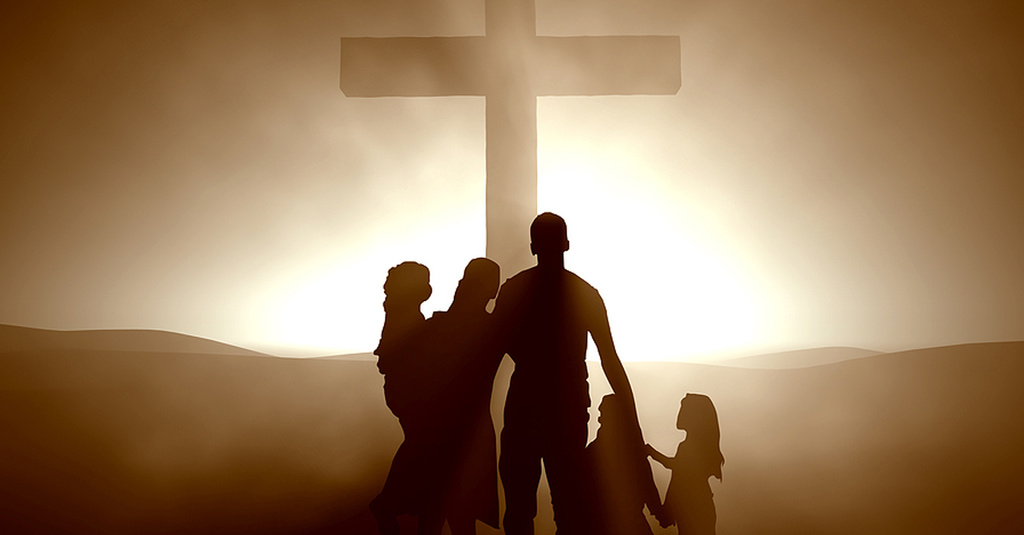Over the years, a number of people have asked me for guidance in starting a home Bible study group, a home church, or a class. There are now many such groups all over the country; someone once told me that perhaps a million people gather in this manner, both Catholics and Protestants. In my travels, I have learned that at least two such groups are now churches, one with a Christian school.
The reasons for these groups are many: no sound church exists in their area; or, they feel a need to supplement what their church does with a more intensive study. This is a remarkable movement because it demonstrates that the laity is deeply concerned with the faith. They recognize the need for a re-awakening of Christian concern and relevance on the grass-roots level. In some instances, where the groups are still tied to their church, their efforts are welcomed as a revitalization of the church; in other cases, the classes are resented. In any case, they are growing, and they are an evidence of a major development: the work of Christ’s Kingdom is seen as the responsibility of every Christian, not something to be relegated to the clergy or the church agencies.
There is another facet to this movement, the development of charitable activities. This began with counseling services to unwed mothers. From an anti-abortion impulse, it has grown into a practical service to unwed mothers, both before and after the baby comes, and then other activities have been started.
We want to be of help to all such groups. We welcome reports from you about your activities and/or services. We think it is wonderful that so many of you are applying your faith to one sphere after another, and we hope that your accounts will stimulate others.
Remember, the early church, for about two centuries or more of its early history, had no sanctuaries. Yet during that time, meeting secretly in homes, and often persecuted, the early church cared for the sick and the elderly, cared for orphans and widows, rescued abandoned babies that had not been successfully aborted, created courts of arbitration to settle cases in terms of Biblical Law (1 Cor. 6), ransomed captives, and much, much more. The church was rapidly becoming the only good government in the Roman Empire.
We believe that there are evidences of like movement today. We want to give you an outlet for telling others of your activities, and for learning what others are doing. Be sure to write to Friends of Chalcedon at the address given on the heading of this newsletter.
In the Old Testament, we see that for most of that era, worship on the Lord’s Day was in the home. All males went to the central sanctuary for the three great feasts, but, the rest of the time the worship was in the home.
The father was God’s priest over his family, with a duty to instruct his household in the nurture and admonition of the Lord. Some churches still retain this structure in varying degrees, and the church membership is reckoned, not by the number of persons, but by the number of families, the basic unit. Remember too that the beginning of the New Testament era was the Holy Family—Joseph, Mary, and Jesus. When the family grows strong, so too does the church.
You may be a member of an excellent church, and we hope you are. All the same, consider seriously some kind of effort to strengthen your family’s Christian life. There is a major revolution under way against the godly family: the sexual revolution, abortion, homosexuality, pornography, sex education classes, euthanasia, and more. We cannot be passive in the face of these things, and nothing is more important in this battle than the renewal of the strength of the Christian family. This is why we take this effort very seriously.
Taken from Our House Church Newsletter, Spring 1994, Issue 1

- R. J. Rushdoony
Rev. R.J. Rushdoony (1916–2001), was a leading theologian, church/state expert, and author of numerous works on the application of Biblical law to society. He started the Chalcedon Foundation in 1965. His Institutes of Biblical Law (1973) began the contemporary theonomy movement which posits the validity of Biblical law as God’s standard of obedience for all. He therefore saw God’s law as the basis of the modern Christian response to the cultural decline, one he attributed to the church’s false view of God’s law being opposed to His grace. This broad Christian response he described as “Christian Reconstruction.” He is credited with igniting the modern Christian school and homeschooling movements in the mid to late 20th century. He also traveled extensively lecturing and serving as an expert witness in numerous court cases regarding religious liberty. Many ministry and educational efforts that continue today, took their philosophical and Biblical roots from his lectures and books.
